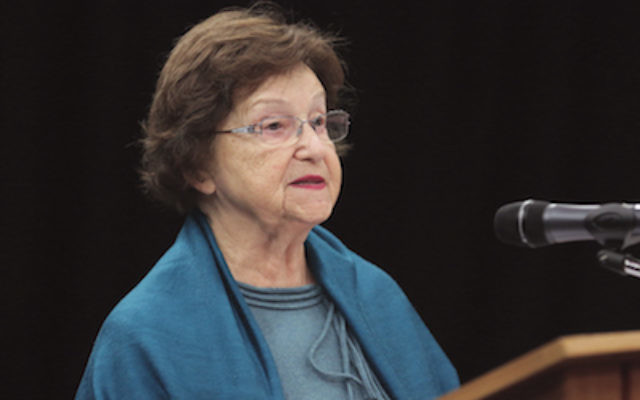Speaking for millions who perished
Guta Goldstein, an Auschwitz survivor from Melbourne, has been touring New Zealand to share her harrowing story with thousands of students.

An Auschwitz survivor from Melbourne has been touring New Zealand to share her harrowing story with thousands of students. Guta Goldstein spent three weeks in the country recounting the horrors she and her family endured, and promoting a message of tolerance.
Speaking to more than 4500 students at 31 schools, Goldstein described the educational trip as a raging success. “I received some standing ovations, it was nice. They were very, very interested,” Goldstein told The AJN.
The 81-year-old was invited to address local schools by the Jewish Federation of New Zealand as part of an initiative called HOPE – Holocaust Outreach Program of Education – which aims to educate students about the Shoah by bringing a survivor to New Zealand every year.
“I spoke on a personal level,” Goldstein said. “They were all very upset about what happened to me. I’m only one person, I told them I was speaking for millions who perished.” “As a survivor, I just went to tell them how it was,” she added.
After Germany’s invasion of Poland in 1939, Goldstein was surrounded by starvation and death within the Lodz Ghetto. At the age of seven, her mother passed away. At the age of 11, she witnessed her father contract pneumonia and die from starvation, leaving her and her little sister orphaned. Only a year later, after moving to an orphanage, her little sister died after being diagnosed with meningitis. This all happened before she was deported to Auschwitz.
“Nothing lived in Auschwitz. There were no birds in Auschwitz, no trees in Auschwitz, not a blade of grass grew in this place of death,” she told students.
Despite the horrors of the camp, Goldstein survived and was among those liberated in 1945. More than seven decades on, she said it was an amazing experience educating youngsters who weren’t fully aware of what had happened.
“They were high school students. They were mostly learning about the history of World War II and the Holocaust,” Goldstein said.
“I had a few hugs and was very well received. They were very attentive. It was a great success,” she added.
After travelling through both islands and visiting more than seven cities in the country, Goldstein said the program should keep getting the coverage it deserves.
“It was very positive. I’ve got a lot of letters and cards and a lot of newspapers were writing about it,” she said.
DANIEL SHANDLER

comments